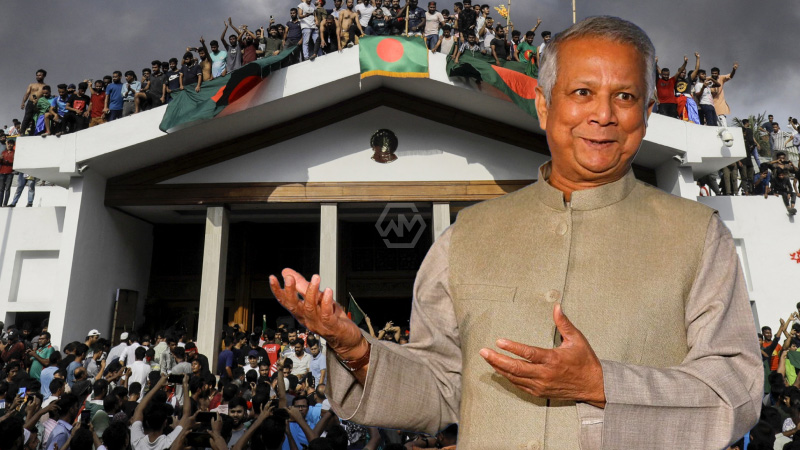- Nobel laureate Mohammad Yunus is proposed as the head of Bangladesh’s interim government by student protesters.
- Sheikh Hasina’s resignation and flight have triggered widespread violence and instability.
- President Mohammed Shahabuddin plans to form an interim government and has ordered the release of Khaleda Zia.
The resignation of Prime Minister Sheikh Hasina and her subsequent departure have left Bangladesh in turmoil, with violent protests claiming over 300 lives in recent weeks.
In response to the crisis, the Students Against Discrimination movement has nominated Nobel laureate Mohammad Yunus to lead an interim government, aiming to restore stability and credibility to the country’s governance.
Bangladesh’s Political Turmoil: Students Back Yunus for Interim Role
Yunus, who gained international acclaim for his work with Grameen Bank and microcredit, has been a controversial figure due to his past conflicts with Hasina’s administration. His nomination highlights the students’ desire for a leader who is both respected and perceived as impartial.
The current president, Mohammed Shahabuddin, has vowed to form an interim government and has acted to release Khaleda Zia, indicating a possible shift in political dynamics. However, the situation remains volatile, with continued violence and uncertainty about the future.
The proposed interim leadership under Yunus represents a potential turning point in Bangladesh’s crisis, offering a chance for new governance but also carrying risks given the current instability and public sentiment.
As Bangladesh navigates through its severe political crisis, the proposal of Mohammad Yunus as interim leader offers a glimmer of hope for stability. However, the success of this move will depend on effective transition management and the ability to address the underlying causes of the unrest.
“Yunus welcomed the ouster of Hasina’s regime, describing the development as the ‘second liberation’ of the country.” – Mohammad Yunus



